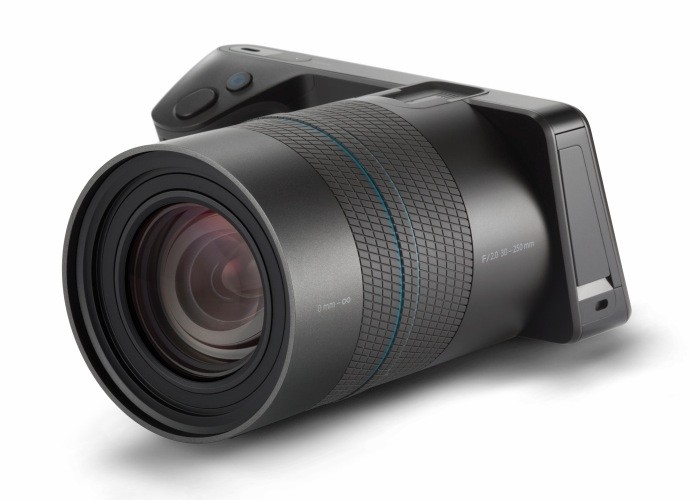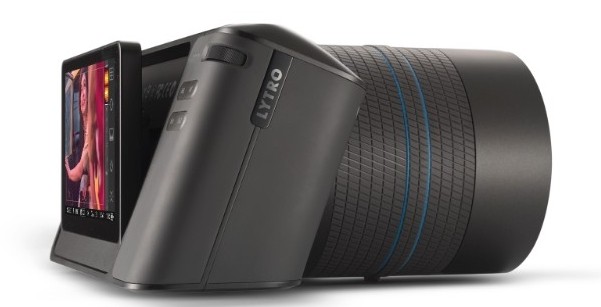It's hard to describe Lytro's first commercially available light-field camera a 'hit'. The technology packed into the strange rectangular prism piece of hardware, which allowed you to fully refocus photos after they're captured, was certainly cool, but the image quality and other quirks kept all but a few early adopters away.
The company hasn't given up though, today unveiling their second-generation light-field camera, which they've named the 'Illum'. Lytro has designed the Illum to actually look like a camera this time, complete with a 30-250mm zoom lens that features an impressive constant f/2.0 aperture.

Lytro boasts that an equivalent Canon lens would have 22 pieces of glass and weigh over 3.5 kg, but thanks to the light-field sensor and special processing software, the Illum only needs 13 pieces of glass to achieve great results. By cutting down on the number of elements, the camera weighs under a kilogram.
If you want to use a flash with the Illum, Lytro has you covered, as they've placed a hot shoe on the top edge. On the rear you'll find a four inch touchscreen panel for composing and reviewing shots, as well as changing settings. The camera is also blessed with USB 3.0, an SD card slot and Wi-Fi connectivity.

Inside the Lytro Illum is a 40 megaray light sensor, up from 11 megarays in the original Lytro, plus a Qualcomm Snapdragon 801 SoC to do all the processing. Light field cameras operate in a fundamentally different way to traditional cameras, which is why talking about ray counts is more important than pixel counts. When converting photos taken by the Illum to standard pixel-packed shots, expect something in the range of 3-4 megapixels.
The Illum will go on sale in July for a price tag of $1,599, with a $100 discount for pre-orders. This is a hefty price to pay for a non-professional camera, so let's hope the impressive lens and improved sensor makes this light-field camera one that's worth buying.